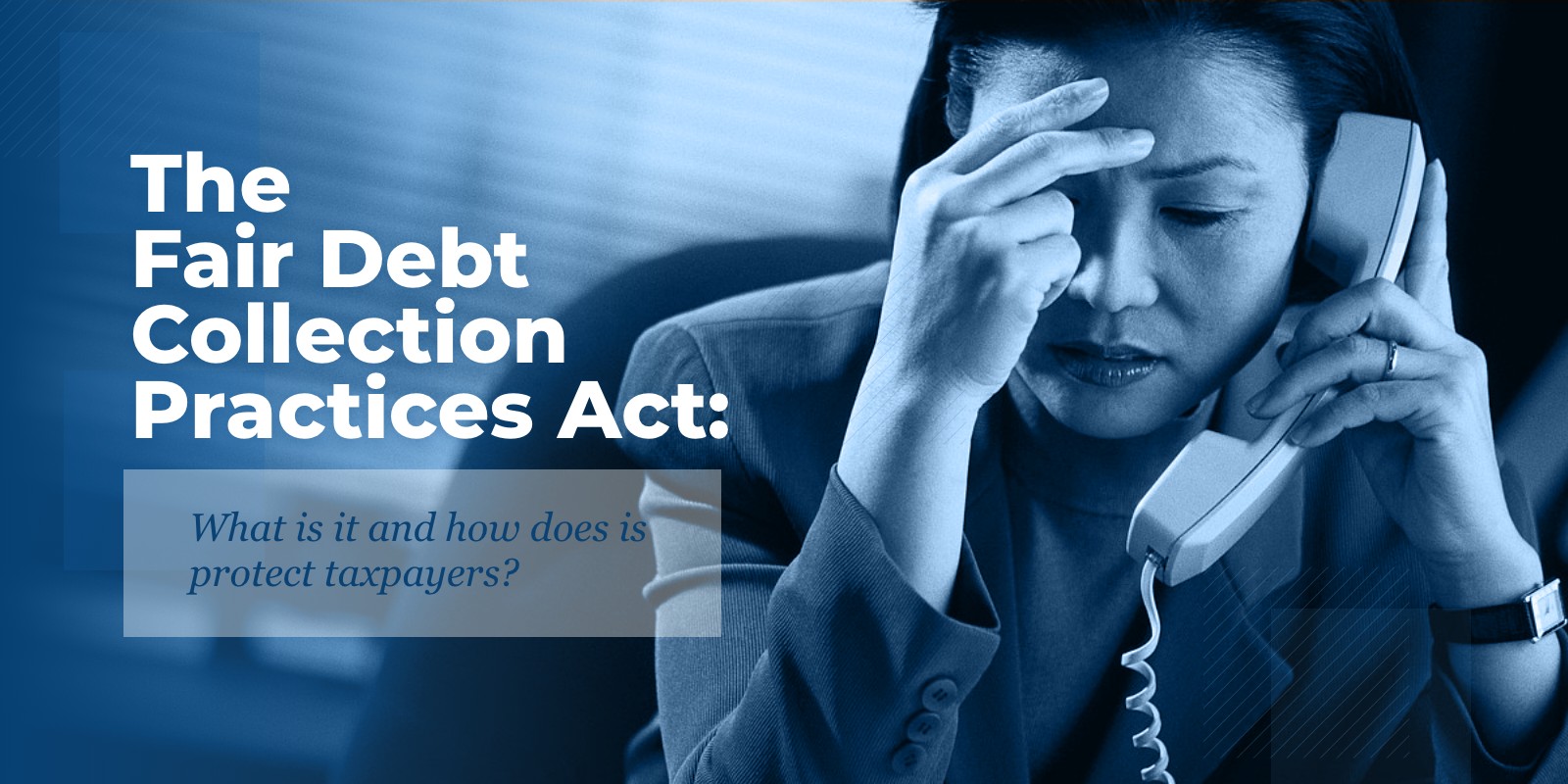
Being in debt is a stressful circumstance that collectors can often intensify with unfair practices. Therefore, the Fair Debt Collection Practices Act (FDCPA) prohibits companies from using such practices to collect debts from you. Here’s an overview of the FDCPA, including what it is, who it applies to, and its key provisions.
What is the FDCPA?
The Fair Debt Collection Practices Act (FDCPA) is a federal law enacted in 1977 to protect consumers from abusive, deceptive, and unfair debt collection practices. It establishes guidelines for debt collectors, ensuring that they operate within legal boundaries while attempting to recover debts. The FDCPA is a key component of consumer protection law in the United States. It’s enforced by the Federal Trade Commission (FTC) and the Consumer Financial Protection Bureau (CFPB).
Who Does the FDCPA Apply To?
The FDCPA applies to third-party debt collectors, which are entities or individuals who collect debts on behalf of others. This includes collection agencies, lawyers who collect debts as part of their practice, and companies that buy delinquent debts and then attempt to collect them. However, the FDCPA does not apply to creditors who are collecting their own debts.
What Does the FDCPA Cover?
The FDCPA covers a broad range of activities related to the collection of consumer debts. Some of these include debts for personal, family, or household purposes. This includes credit card debts, medical bills, mortgages, auto loans, and other types of personal debts. However, the FDCPA does not cover business debts or debts incurred for commercial purposes.
Key Provisions of the FDCPA
The FDCPA sets forth several rules and restrictions aimed at protecting consumers. Some of the most important provisions include the following items.
Communication Restrictions
Debt collectors are prohibited from contacting consumers at inconvenient times. This is typically before 8 a.m. or after 9 p.m., unless the consumer agrees to it. Additionally, they cannot contact consumers at their place of employment if they are aware that the employer prohibits such communication. Debt collectors are also generally not allowed to discuss a consumer’s debt with third parties, except to obtain contact information. They cannot disclose that the consumer owes a debt.
Prohibition of Harassment
Debt collectors are forbidden from engaging in any form of harassment or abuse. This includes making repeated phone calls with the intent to annoy, abuse, or harass, using obscene or profane language, and making threats of violence or harm.
False or Misleading Representations
The FDCPA prohibits debt collectors from using false, deceptive, or misleading representations. This includes lying about the amount owed, falsely claiming to be a lawyer, or threatening legal action that is not intended.
Validation of Debt
Upon the consumer’s request, debt collectors must provide a written validation notice that includes the debt amount, the name of the creditor, and the consumer’s right to dispute it. If the consumer disputes the debt in writing within 30 days, the debt collector must provide verification of the debt before continuing collection efforts.
Ceasing Communication
If a consumer sends a written request for a debt collector to stop contacting them, the collector must cease communication, except to confirm that there will be no further contact or to notify the consumer of specific legal actions being taken.
Enforcement and Penalties
Consumers who believe their rights under the FDCPA have been violated can file a complaint with the FTC or CFPB. Additionally, they can sue the debt collector in state or federal court within one year of the violation. If successful, the consumer may recover damages, attorney’s fees, and, in some cases, statutory damages of up to $1,000. Debt collectors found to have violated the FDCPA may face fines and other penalties imposed by the FTC or CFPB. These agencies can also take legal action against debt collectors. This can result in further penalties or orders to cease certain practices.
The Importance of the FDCPA
The FDCPA plays a critical role in balancing consumer rights and debt collectors’ needs. While it recognizes the legitimacy of debt collection, it ensures that the process is conducted fairly and respectfully. By providing clear guidelines and legal recourse, the FDCPA helps protect consumers from abusive practices that can cause emotional distress, financial harm, and damage to their reputation.
FDCPA and Tax Debt
The IRS must also abide by the Fair Debt Collection Practices Act. You have rights as a taxpayer that restricts their communication and enforcement practices. Optima Tax Relief is the nation’s leading tax resolution firm with over $1 billion in resolved tax liabilities.
Tax Help for Those Who Owe
The Fair Debt Collection Practices Act remains a cornerstone of consumer protection law. It safeguards individuals from unfair and abusive debt collection practices. As the debt collection industry evolves, the FDCPA continues to be a vital tool in ensuring that consumers are treated with dignity and respect. Understanding your rights under this law is essential for protecting yourself from potential abuse. Optima Tax Relief is the nation’s leading tax resolution firm with over $3 billion in resolved tax liabilities.
If You Need Tax Help, Contact Us Today for a Free Consultation